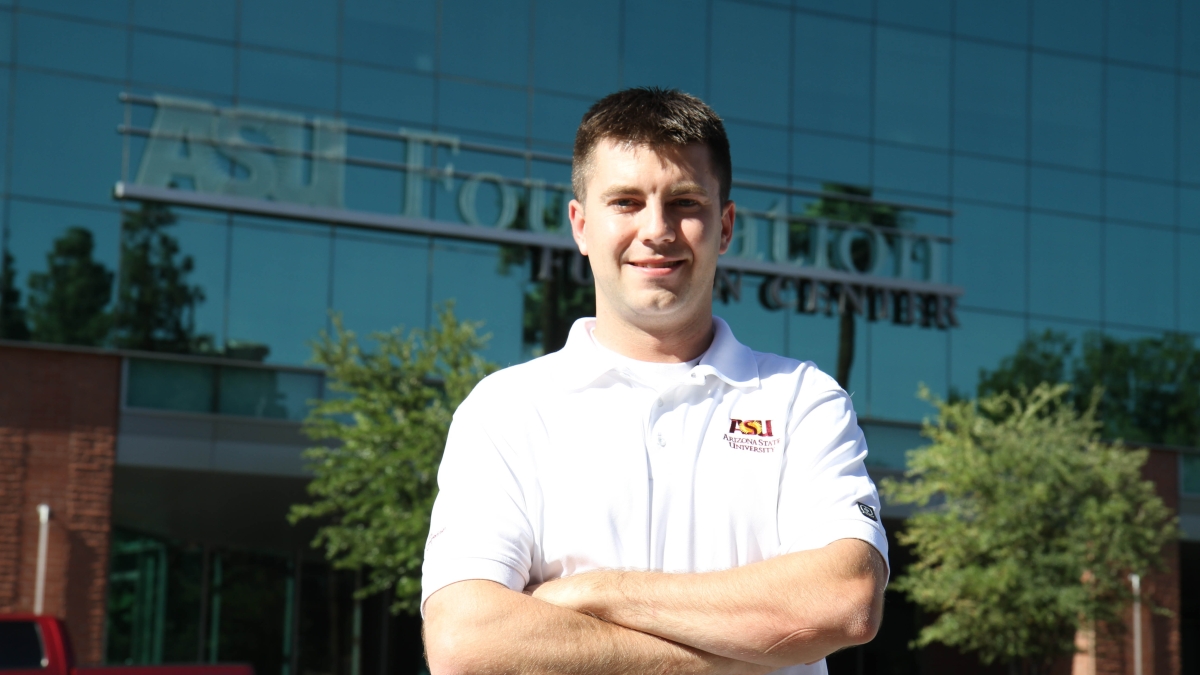Student combines construction, sustainability in new venture

Tim Exposito’s interest in construction is nothing new. At 16, he helped his brother build a house. In high school, he worked at a cousin’s construction business. During his high school senior year, Exposito spent his mornings at a construction site and his afternoons in the classroom.
His passion for sustainability has always been there, too.
“I’ve always written papers about recycling, impacts and implications,” Exposito says. “Sustainability has always been a fascination of mine. It’s always been a goal of mine to reuse something instead of throwing it away. I do this in construction and everyday as much as possible.”
Originally from Michigan, Exposito earned his associate’s degree in architecture and construction technology before moving to Arizona in 2011. While researching sustainability, Exposito stumbled upon Arizona State University’s School of Sustainability.
“There was so much information on sustainability that I continued to look into it,” he says. “It sparked a fascination and I came across ASU’s program.”
Now, Exposito gets to combine construction and sustainability in his career.
Exposito works full time at CORE construction as a superintendent on U.S. Green Building Council LEED-certified projects. He recently started a new venture called Balanced Future Remodeling, LLC. The company assists contractors during sustainable remodeling projects with Balance Future Remodeling’s own network of realtors, marketing professionals and sustainable material suppliers.
In addition to graduating from the School of Sustainability, Exposito is graduating from the Del E. Webb School of Construction and the Ira A. Fulton Schools of Engineering, where he was able to share his sustainability knowledge with fellow classmates.
“Sustainability can be applied to anything you want to apply it to – construction, education, life in general,” he says. “It’s tough to put a specific definition to it.”
While a student, Exposito immersed himself in several campus construction and sustainability initiatives. As part of the Engineering Projects in Community Service (EPICS) program, a social entrepreneurship class, he helped build a “cabin of the future” for a camp in Prescott and promoted digital literacy in education at a school in rural Mexico.
“In the EPICS program, we tackled real-world problems and made the world better for those who can’t make it better for themselves,” he says.
Exposito has some advice for new sustainability students: be open-minded and take a holistic approach to problem-solving.
“Hard work pays off and I think it is beneficial to show other sustainability students what can be achieved throughout the university if you apply yourself,” he says. “There are a lot of opportunities available through sustainability education.”